No products in the cart.
WordPress Dynamic Content Design Plugins Destroy Bounce Rates
In today’s competitive digital landscape, static websites are rapidly losing ground to personalized experiences that adapt to individual users. Modern visitors expect content that speaks directly to their needs, preferences, and behaviors. WordPress dynamic content design plugins represent the solution—sophisticated software extensions that enable websites to display different content based on user behavior, location, device type, and countless other conditional factors. These powerful tools integrate seamlessly with WordPress core functionality to create truly personalized user experiences without requiring custom coding expertise. Research shows that personalized content can increase conversion rates by up to 202%, making dynamic content plugins essential for serious WordPress site owners who want to solve technical challenges, evaluate solutions effectively, and make informed purchasing decisions.
I. Understanding WordPress Dynamic Content Design Plugins
1. What Makes Content “Dynamic” Vs Static?
Dynamic content transforms your WordPress site from a one-size-fits-all experience into a personalized journey for each visitor. Unlike static content that remains identical for every user, dynamic content utilizes conditional logic to display different elements based on specific triggers. These WordPress dynamic content design plugins work by analyzing user data such as geographic location, browsing history, device type, membership status, or custom parameters to deliver targeted experiences.
The technology leverages WordPress hooks and filters, database queries, and template customization to create seamless personalization. Modern plugins integrate effortlessly with popular page builders like Elementor and Gutenberg, enabling drag-and-drop dynamic content creation without coding knowledge.
2. Business Benefits Of Dynamic Personalization

Business Benefits of Dynamic Personalization
Implementing WordPress dynamic content design plugins delivers measurable business results across multiple dimensions. Website personalization directly impacts conversion rate optimization by presenting relevant offers, products, and messaging to specific user segments. This targeted approach significantly improves user experience optimization and visitor engagement rates.
For businesses focused on marketing automation, these plugins enable sophisticated behavioral triggers that nurture leads through personalized content journeys. The result is enhanced customer segmentation, improved lead generation, and ultimately, revenue optimization that drives sustainable business growth.
II. Types Of WordPress Dynamic Content Solutions
1. Landing Page Builders With Dynamic Features
SeedProd stands out as a comprehensive solution that combines landing page creation with powerful dynamic content capabilities. This premium WordPress dynamic content plugin offers query parameters integration, enabling personalized experiences based on traffic sources or campaign data. Small business owners particularly benefit from SeedProd’s user-friendly interface that makes complex personalization accessible without technical expertise.
The plugin excels in creating WordPress conditional content for different user scenarios, from first-time visitors to returning customers. Its integration with popular email marketing platforms enables seamless marketing automation workflows.
2. Personalization And Conditional Logic Plugins
If-So represents the gold standard for WordPress personalization plugins, offering sophisticated conditional logic capabilities that rival enterprise solutions. This plugin enables detailed user segmentation based on geographic location, referral source, device type, and custom conditions. The geo-targeted content WordPress plugins functionality makes it ideal for local businesses seeking to display location-specific information.
Advanced users appreciate If-So’s ability to create complex, nested conditions that enable highly targeted content delivery. The plugin’s WordPress user role based content capabilities ensure that different user types see appropriate messaging and offers.
3. Advanced Custom Field Solutions

Advanced Custom Field Solutions
Advanced Custom Fields (ACF) Pro transforms WordPress into a flexible content management powerhouse, enabling developers to create dynamic content through custom fields and meta fields. This developer-focused solution integrates with external CRM systems to pull real-time user data for advanced personalization scenarios.
The plugin’s compatibility with custom post types and taxonomies makes it ideal for complex websites requiring sophisticated content structures. For WordPress dynamic content plugin for developers, ACF Pro offers unmatched flexibility in creating personalized user experiences through custom code integration.
4. E-commerce Dynamic Content Tools
WooCommerce-powered sites benefit tremendously from specialized dynamic WordPress plugin for ecommerce solutions. FunnelKit exemplifies this category by offering dynamic pricing, personalized product recommendations, and cart abandonment recovery features. These tools enable sophisticated sales funnel optimization through behavioral targeting and customer segmentation.
The integration with WooCommerce’s native functionality ensures seamless dynamic content delivery across product pages, checkout processes, and post-purchase experiences.
III. Top 9 WordPress Dynamic Content Design Plugins Reviewed
1. Best Overall: SeedProd Dynamic Landing Pages
SeedProd combines intuitive design tools with powerful WordPress dynamic content design plugins functionality. The platform offers extensive template customization options, dynamic widgets, and seamless integration with popular email marketing services. Pricing starts at $39.50 annually for personal use, scaling to $239.50 for agency-level features.
Pros: Drag-and-drop interface, extensive template library, strong conversion optimization features
Cons: Limited advanced conditional logic compared to specialized plugins
Ideal for: Small business owners and marketers creating high-converting landing pages
2. Best For Popups: OptinMonster Smart Campaigns
OptinMonster revolutionizes popup creation with intelligent behavioral triggers and dynamic content capabilities. The platform offers sophisticated WordPress conditional content plugins pricing with plans ranging from $9 monthly to $49 monthly for advanced features. Its Exit Intent technology and dynamic popup content WordPress plugins for conversion make it indispensable for lead generation.
The plugin’s ability to personalize popup content based on user behavior, referral source, and browsing patterns delivers exceptional conversion rate optimization results.
3. Best Free Option: If-So Dynamic Content
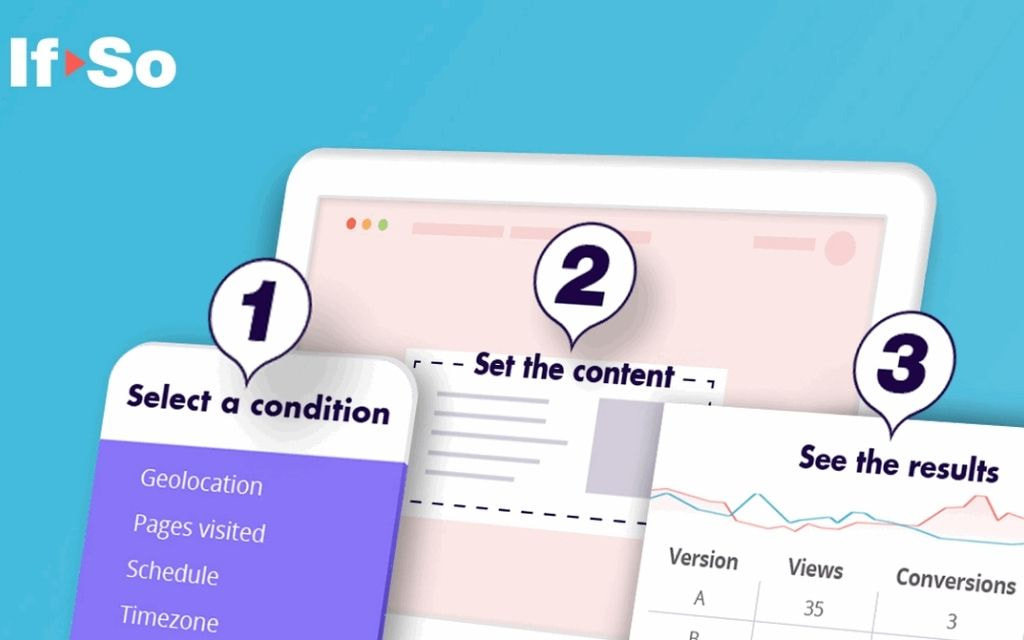
If-So Dynamic Content
If-So provides robust WordPress dynamic content design plugins functionality through both free and premium tiers. The free version offers basic conditional content display, while premium features include advanced user segmentation and A/B testing capabilities. This makes it perfect for WordPress dynamic content plugins for small business owners testing personalization strategies.
The plugin excesses in creating WordPress plugin to show different content to logged in users, making it valuable for membership sites and subscriber-based businesses.
4. Best For Developers: Advanced Custom Fields Pro
ACF Pro stands as the premier choice for WordPress dynamic content plugin for developers seeking maximum flexibility. The plugin enables sophisticated custom field creation, complex database queries, and seamless integration with custom themes and plugins. Its powerful meta fields system allows for intricate content personalization scenarios.
Developers appreciate the plugin’s extensive documentation, hook system, and compatibility with modern development workflows including the WordPress REST API and JavaScript frameworks.
5. Best For E-commerce: FunnelKit Dynamic Offers
FunnelKit specializes in WooCommerce personalization, offering dynamic pricing, one-click upsells, and order bump features. The plugin creates comprehensive sales funnel optimization through personalized product recommendations and cart abandonment recovery. Its WordPress dynamic pricing plugins for freelancers functionality helps service providers optimize their pricing strategies.
6. Best For Forms: WPForms Conditional Logic
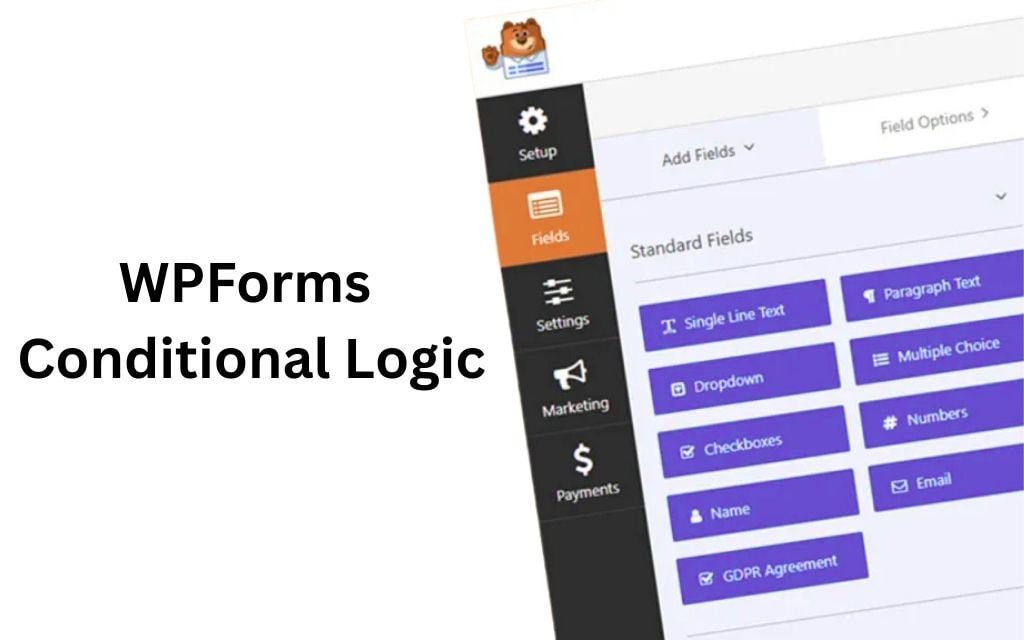
WPForms Conditional Logic
WPForms transforms static forms into intelligent data collection tools through conditional logic WordPress plugins for beginners functionality. The plugin enables dynamic form field display based on user responses, creating personalized user experiences that increase completion rates and data quality.
Smart tags and pre-filling capabilities make forms feel intuitive and personalized, while advanced conditional logic ensures users only see relevant fields.
7. Best For Visual Design: JetEngine Elementor Integration
JetEngine creates powerful synergy between Elementor and dynamic content, enabling visual designers to create sophisticated personalized experiences without coding. The plugin’s dynamic content WordPress plugins compatible with Elementor functionality makes it ideal for agencies and designers working with complex client requirements.
The solution enables creation of “content ecosystems” where dynamic elements influence each other across entire websites, representing one of the most advanced implementations of WordPress dynamic content design plugins available.
8. Best For Social Proof: TrustPulse Real-time Notifications
TrustPulse leverages behavioral psychology through real-time social proof notifications that adapt to user behavior and site activity. The plugin creates urgency and trust through dynamic content that displays recent purchases, sign-ups, and user activity.
9. Best For Quizzes: Thrive Quiz Builder Dynamic Results
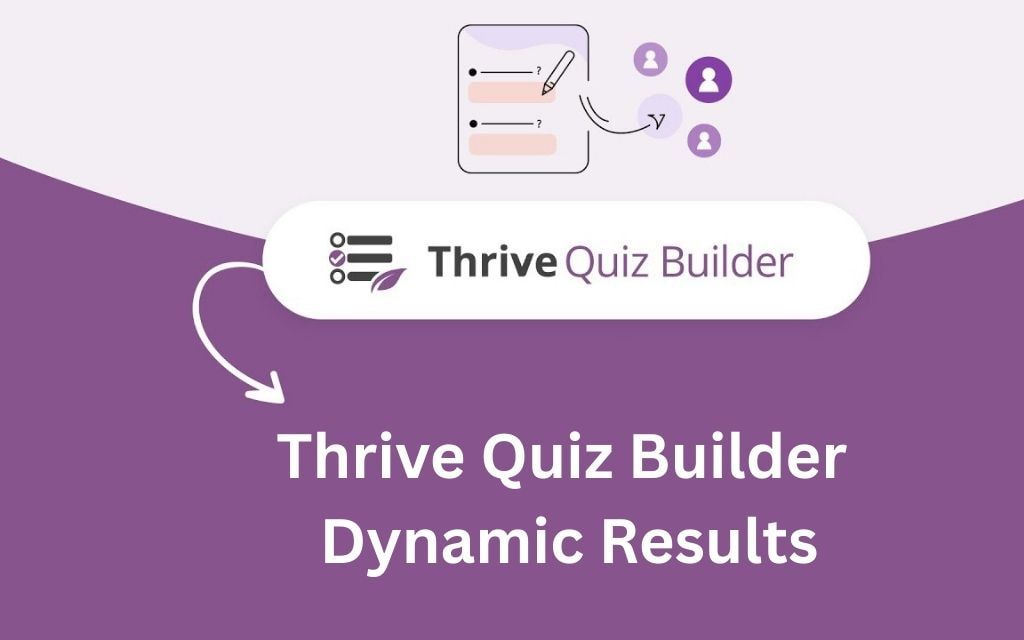
Thrive Quiz Builder Dynamic Results
Thrive Quiz Builder enables interactive content creation with personalized results pages that segment users based on their responses. This powerful lead generation tool combines entertainment value with sophisticated user segmentation capabilities.
IV. How to Choose The Right Dynamic Content Plugin
1. Assessing Your Website Needs
Selecting the optimal WordPress dynamic content design plugins requires careful evaluation of your specific business objectives and technical requirements. Begin by identifying your primary goals: are you focused on lead generation, conversion rate optimization, user experience enhancement, or comprehensive marketing automation?
Consider your target audience’s behavior patterns and the types of personalization that would most impact their journey. E-commerce sites benefit from product recommendation engines and dynamic pricing, while service-based businesses might prioritize geographic personalization and lead nurturing content.
2. Plugin Compatibility Check

Plugin Compatibility Check
Before implementation, thoroughly assess how potential plugins integrate with your existing WordPress ecosystem. Verify compatibility with your current theme, page builder (Elementor, Gutenberg, etc.), and essential plugins like WooCommerce or membership systems.
Performance impact represents a critical consideration—choose WordPress dynamic content design plugins that maintain site speed through efficient caching and optimized database queries. Review plugin documentation for recommended hosting requirements and scaling capabilities.
V. Getting Started With Dynamic Content Implementation
1. Installation And Basic Configuration
Most WordPress dynamic content design plugins follow standard WordPress installation procedures through the admin dashboard or manual upload. However, proper configuration requires strategic planning to maximize effectiveness.
Start with simple conditional logic rules before advancing to complex user segmentation scenarios. This approach allows you to learn implementation best practices while minimizing potential conflicts or performance issues.
2. Creating Your First Dynamic Content Rules

Creating Your First Dynamic Content Rules
Begin with high-impact, low-complexity personalization scenarios such as displaying different content to new versus returning visitors. WordPress personalization plugins for membership sites can start with role-based content display, while local businesses might implement geo-targeted content.
A/B testing capabilities in advanced WordPress dynamic content design plugins enable data-driven optimization of personalization rules, ensuring your dynamic content delivers measurable improvements in user engagement and conversion rates.
3. Advanced Personalization Techniques
Once comfortable with basic implementation, explore sophisticated features like multi-layered conditional logic, external API integrations, and cross-device personalization. These capabilities enable creation of truly personalized user experiences that adapt to complex user journeys and behaviors.
Consider how to personalize WordPress content based on user behavior through integration with analytics platforms, CRM systems, and marketing automation tools for comprehensive personalization strategies.
VI. Maximizing ROI from Dynamic Content Plugins
1. Measuring Success And Analytics
Effective WordPress dynamic content design plugins provide robust analytics and conversion tracking capabilities. Establish clear KPIs including conversion rate improvements, engagement metrics, and revenue attribution to dynamic content experiences.
Integration with Google Analytics, Google Tag Manager, and conversion tracking pixels ensures comprehensive measurement of personalization impact across your entire marketing funnel.
2. Performance Optimization Best Practices

Performance Optimization Best Practices
Dynamic content should enhance rather than hinder website performance. Implement caching strategies specifically designed for dynamic content, optimize database queries, and consider content delivery network (CDN) integration for global audiences.
Regular performance monitoring ensures your WordPress dynamic content design plugins continue delivering optimal user experiences as your site scales and evolves.
VII. Common Dynamic Content Plugin Issues And Solutions
1. Technical Troubleshooting Guide
Common challenges include conflicts between multiple personalization plugins, caching issues preventing dynamic content updates, and database performance degradation. Systematic troubleshooting involves isolating variables, testing in staging environments, and consulting plugin documentation.
WordPress plugins for location based content display may face challenges with IP geolocation accuracy, while behavioral targeting plugins might struggle with GDPR compliance requirements.
2. When To Upgrade Or Switch Plugins

When to Upgrade or Switch Plugins
Evaluate your WordPress dynamic content design plugins periodically against evolving business needs and available features. Signs that indicate the need for more advanced solutions include hitting user limit restrictions, requiring features not available in current plugins, or experiencing performance bottlenecks.
Migration between plugins requires careful data backup and testing to ensure continuity of personalized user experiences.
VIII. FAQ Section
What Is The Difference Between Dynamic And Static Content In WordPress?
Dynamic content automatically changes based on user behavior, preferences, location, or other conditions, while static content remains the same for all visitors. Dynamic content plugins enable personalized experiences that increase engagement and conversions through targeted messaging and relevant content delivery.
Do I Need Coding Skills To Use WordPress Dynamic Content Plugins?
Most modern dynamic content plugins offer drag-and-drop interfaces and visual editors, requiring no coding knowledge. However, advanced customizations may benefit from basic HTML/CSS understanding. Platforms like Elementor integration make personalization accessible to non-technical users.
Will Dynamic Content Plugins Slow Down My WordPress Website?
Well-optimized dynamic content plugins have minimal impact on site speed. Choose plugins with efficient caching systems and follow performance best practices like image optimization and reliable hosting. Quality WordPress dynamic content design plugins prioritize performance optimization.
Can I Use Multiple Dynamic Content Plugins Together On The Same Website?
Yes, but careful planning is essential to avoid conflicts. Test plugin combinations thoroughly and ensure they complement rather than duplicate functionality for optimal performance. Consider consulting WordPress experts for complex multi-plugin implementations.
How Much Do WordPress Dynamic Content Plugins Typically Cost?
Prices range from free (basic features) to $200+ annually for premium solutions. Consider your specific needs, website traffic, and required features when evaluating cost vs. value for your business. Enterprise solutions may require custom pricing.
IX. Conclusion
WordPress dynamic content design plugins represent the future of web personalization, enabling businesses to create engaging, relevant experiences that drive conversions and build lasting customer relationships. From simple conditional content display to sophisticated behavioral targeting and marketing automation, these tools transform static WordPress sites into dynamic, personalized experiences.
Success with dynamic content requires strategic planning, proper implementation, and ongoing optimization based on user data and performance metrics. Whether you’re a small business owner seeking basic personalization or a developer building complex user experiences, the right WordPress dynamic content design plugins can significantly impact your website’s effectiveness and business growth.
For professional WordPress plugin development and dynamic content implementation services, Temply Studio offers expert consultation and custom solutions tailored to your specific business needs. Our team specializes in WordPress dynamic content design plugins integration, optimization, and ongoing support to ensure your personalization strategies deliver maximum ROI.

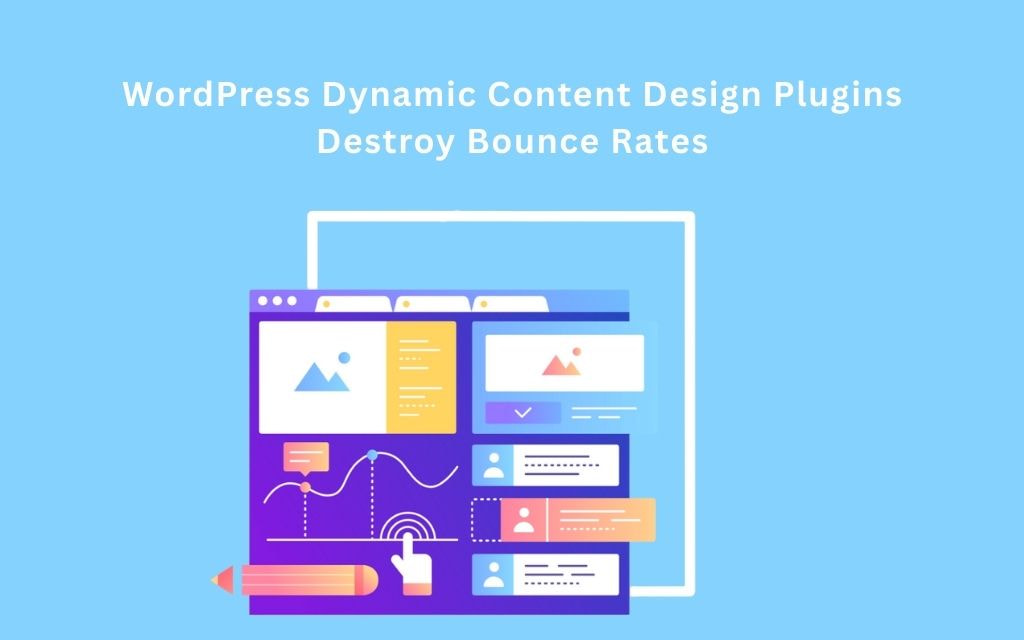

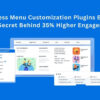


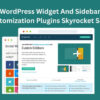

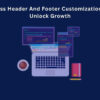
Add comment